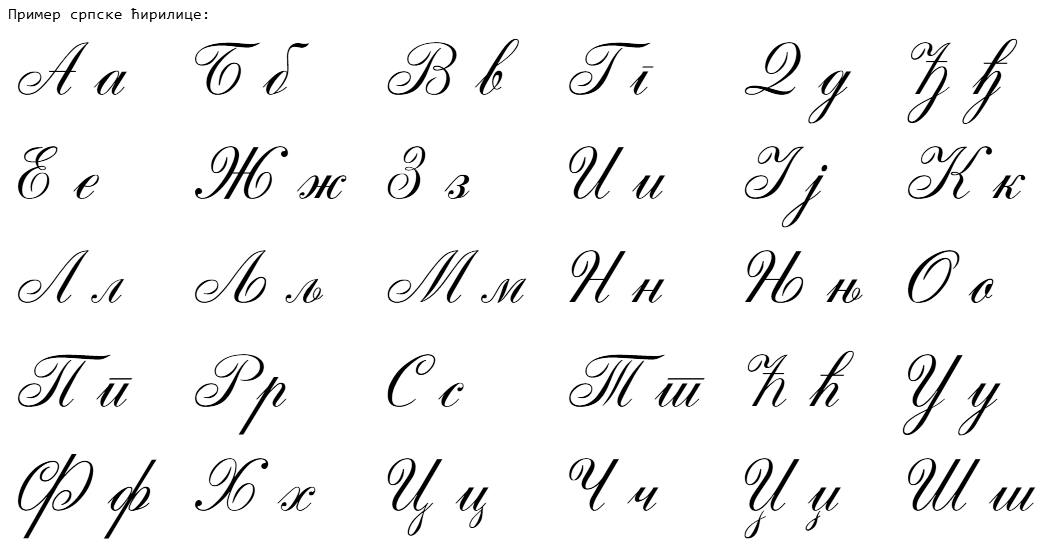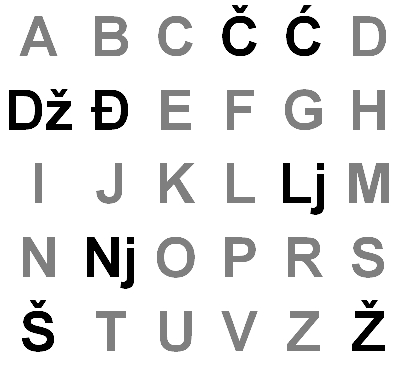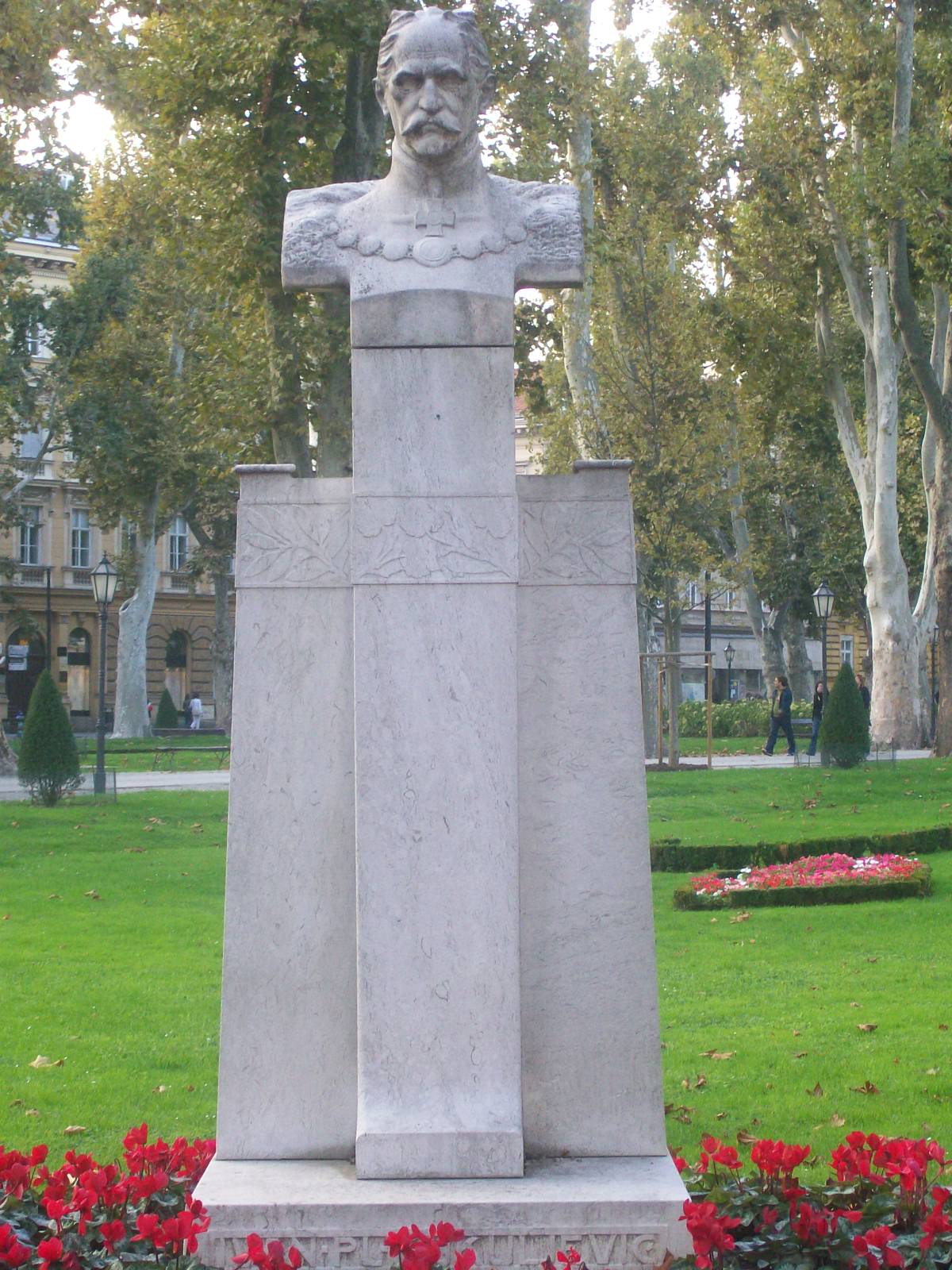 |
Vienna Literary Agreement
The Vienna Literary Agreement (Serbo-Croatian: ''Bečki književni dogovor'', Бечки књижевни договор) was the result of a meeting held in March 1850, when writers from Croatia, Serbia and Carniola (Slovenia) met to discuss the extent to which their literatures could be conjoined and united to standardize the Serbo-Croatian language. The agreement recognized the commonality of South Slavic dialects and enumerated a basic set of grammar rules which they shared. Historical context The first half of 19th century proved to be a turning point in Illyrian language conceptions. Around this time, Illyrians held individual debates with their opponents, and Zagreb, as the center of Croatian cultural and literary life, served as a stronghold for their implementation and propagation. However, with the years some of their adherents came to recognize the infeasibility of linguistic and literary unification of all South Slavs, realizing that the only real option left wou ... [...More Info...] [...Related Items...] OR: [Wikipedia] [Google] [Baidu] |
 |
Franz Von Miklosich (Dauthage, 1853)
Franz Miklosich (german: Franz Ritter von Miklosich, also known in Slovene as ; 20 November 1813 – 7 March 1891) was a Slovene philologist. Early life Miklosich was born in the small village of Radomerščak near the Lower Styrian town of Ljutomer, then part of the Austrian Empire, and baptized ''Franz Xav. Mikloschitsh''. He graduated from the University of Graz with a doctor of philosophy degree. Career He was a professor of philosophy at the University of Graz. In 1838, he went to the University of Vienna, where he received a doctor of law decree. During his studies, he became influenced by the works of the Slovenian philologist and linguist Jernej Kopitar. He abandoned law, devoting most of his later life to the study of Slavic languages. In 1844, he obtained a post at the Imperial Library of Vienna, where he remained until 1862. In 1844, he published a review of Franz Bopp's book ''Comparative Grammar,'' which attracted attention from the Viennese academic circles. Thi ... [...More Info...] [...Related Items...] OR: [Wikipedia] [Google] [Baidu] |
|
South Slavs
South Slavs are Slavic peoples who speak South Slavic languages and inhabit a contiguous region of Southeast Europe comprising the eastern Alps and the Balkan Peninsula. Geographically separated from the West Slavs and East Slavs by Austria, Hungary, Romania, and the Black Sea, the South Slavs today include Bosniaks, Bulgarians, Croats, Macedonians, Montenegrins, Serbs, and Slovenes, respectively the main populations of Bosnia and Herzegovina, Bulgaria, Croatia, North Macedonia, Montenegro, Serbia, and Slovenia. In the 20th century, the country of Yugoslavia (from Serbo-Croatian, literally meaning "South Slavia" or "South Slavdom") united majority of South Slavic peoples and lands—with the exception of Bulgarians and Bulgaria—into a single state. The Pan-Slavic concept of ''Yugoslavia'' emerged in the late 17th century Croatia, at the time party of Habsburg Monarchy, and gained prominence through the 19th-century Illyrian movement. The Kingdom of Serbs, Croats and Sl ... [...More Info...] [...Related Items...] OR: [Wikipedia] [Google] [Baidu] |
|
 |
Serbian Cyrillic
The Serbian Cyrillic alphabet ( sr, / , ) is a variation of the Cyrillic script used to write the Serbian language, updated in 1818 by Serbian linguist Vuk Karadžić. It is one of the two alphabets used to write standard modern Serbian, the other being Gaj's Latin alphabet. Karadžić based his alphabet on the previous Slavonic-Serbian script, following the principle of "write as you speak and read as it is written", removing obsolete letters and letters representing iotified vowels, introducing from the Latin alphabet instead, and adding several consonant letters for sounds specific to Serbian phonology. During the same period, linguists led by Ljudevit Gaj adapted the Latin alphabet, in use in western South Slavic areas, using the same principles. As a result of this joint effort, Serbian Cyrillic and Gaj's Latin alphabets for Serbian-Croatian have a complete one-to-one congruence, with the Latin digraphs Lj, Nj, and Dž counting as single letters. Karadžić's Cyr ... [...More Info...] [...Related Items...] OR: [Wikipedia] [Google] [Baidu] |
 |
Gaj's Latin Alphabet
Gaj's Latin alphabet ( sh-Latn-Cyrl, Gajeva latinica, separator=" / ", Гајева латиница}, ), also known as ( sh-Cyrl, абецеда, ) or ( sh-Cyrl, гајица, link=no, ), is the form of the Latin script used for writing Serbo-Croatian and all of its standard varieties: Bosnian, Croatian, Montenegrin, and Serbian. The alphabet was initially devised by Croatian linguist Ljudevit Gaj in 1835 during the Illyrian movement in ethnically Croatian parts of Austrian Empire. It was largely based on Jan Hus's Czech alphabet and was meant to serve as a unified orthography for three Croat-populated kingdoms within the Austrian Empire at the time, namely Croatia, Dalmatia and Slavonia, and their three dialect groups, Kajkavian, Chakavian and Shtokavian, which historically utilized different spelling rules. A slightly modified version of it was later adopted as the formal Latin writing system for the unified Serbo-Croatian standard language per the Vienna Litera ... [...More Info...] [...Related Items...] OR: [Wikipedia] [Google] [Baidu] |
 |
Ljudevit Gaj
Ljudevit Gaj (; born Ludwig Gay; hu, Gáj Lajos; 8 August 1809 – 20 April 1872) was a Croatian linguist, politician, journalist and writer. He was one of the central figures of the pan-Slavist Illyrian movement. Biography Origin He was born in Krapina (then in the Varaždin County, Kingdom of Croatia, Austrian Empire) on August 8, 1809. His father Johann Gay was a German immigrant from Hungarian Slovakia, and his mother was Juliana ' Schmidt, the daughter of a German immigrant arriving in the 1770s. The Gays were originally of Burgundian Huguenot origin. They arrived in Batizovce in present-day Slovakia in 16th or 17th century. Thence they became serfs of Mariassy de Markusfalva and Batizfalva families in 18th century. As there were a lot of ethnic Germans in that area, the Gays were soon Germanised. Ljudevit's father originates from a branch that moved to the village of Markušovce. Ljudevit completed high school in Varaždin, Zagreb and Karlovac, and he studied ... [...More Info...] [...Related Items...] OR: [Wikipedia] [Google] [Baidu] |
|
Stjepan Pejaković
Stjepan is a Croatian masculine given name, variant of Stephen, used by ijekavian speakers. In Croatia, the name Stjepan was among the top ten most common masculine given names in the decades up to 1969. Notable people with the name include: * Stjepan Držislav of Croatia, Croatian monarch * Stjepan II of Croatia, Croatian monarch * Stjepan Svetoslavić, Croatian nobleman * Stjepan Andrijašević, Croatian footballer * Stjepan Babić, Croatian linguist * Stjepan Babić (footballer), Croatian footballer * Stjepan Bobek, Croatian footballer * Stjepan Božić, Croatian boxer * Stjepan Brodarić, Croatian cleric * Stjepan Deverić, Croatian footballer * Stjepan Damjanović, Croatian linguist * Stjepan Đureković, Croatian businessman * Stjepan Filipović, Croatian partisan * Stjepan Gomboš, Croatian architect * Stjepan Gradić, Croatian polymath * Stjepan Hauser, Croatian cellist * Stjepan Horvat, Croatian geodesist * Stjepan Ivšić, Croatian linguist * Stjepan Janić, Croatia ... [...More Info...] [...Related Items...] OR: [Wikipedia] [Google] [Baidu] |
|
|
Vinko Pacel
Vinko is a masculine name related to Vincent, and may refer to: Given name *Frane Vinko Golem (1938–2007), Croatian diplomat and politician * Vinko Begović (born 1948), Croatian football coach *Vinko Bogataj (born 1950), former ski jumper from Slovenia *Vinko Brešan (born 1964), Croatian film director * Vinko Coce (1954–2013), Croatian singer * Vinko Dvořák (1848–1922), Czech-Croatian physicist, professor and rector of Zagreb University *Vinko Globokar (born 1934), avant-garde composer and trombonist of Slovene descent *Vinko Golob (1921–1995), Bosnian football player *Vinko Knežević (1755–1832), Austrian general of the Napoleonic Wars *Vinko Ošlak (born 1947), Slovene author, essayist, translator, columnist and esperantist from the Austrian state Carinthia *Vinko Pintarić (1941–1991), Croatian serial killer *Vinko Pribojević (born mid-15th century), Croatian historian, ideologue and founder of the pan-Slavic ideology *Vinko Puljić (born 1945), Bosnian Croat C ... [...More Info...] [...Related Items...] OR: [Wikipedia] [Google] [Baidu] |
|
 |
Ivan Mažuranić
Ivan Mažuranić (; 11 August 1814 – 4 August 1890) was a Croatian poet, linguist, lawyer and politician who is considered to be one of the most important figures in Croatia's political and cultural life in the mid-19th century. Mažuranić served as Ban of Kingdom of Croatia-Slavonia between 1873 and 1880, and since he was the first ban not to hail from old nobility, he was known as ''Ban pučanin'' (Ban commoner). His realistic assessment of strengths and weaknesses of Croatia's position between Austrian bureaucracy and Hungarian expansionist nationalism proved invaluable to his home country during the wider political turmoil in mid and late 19th century Europe. Mažuranić is best remembered for his contributions to the development of the Croatian law system, economics, linguistics, and poetry. Life and education Ivan Mažuranić was born on 11 August 1814 as the third of four sons into a well-to-do yeoman family of Ivan Mažuranić Petrov in Novi Vinodolski in northern co ... [...More Info...] [...Related Items...] OR: [Wikipedia] [Google] [Baidu] |
 |
Ivan Kukuljević Sakcinski
Ivan Kukuljević Sakcinski (29 May 1816 – 1 August 1889) was a Croatian historian, politician and writer, most famous for the first speech delivered in Croatian before the Parliament. Considered a renowned patriot, Kukuljević was a proponent of Illyrian movement and avid collector of historical documents, primarily those for his work in Croatian historiography and bibliography. Early life Kukuljević was born in Maruševec near Varaždin. His family originates from Rama in Bosnia. He was also a distant relative of Grgo Martić, a Bosnian Franciscan. Kukuljević Sakcinski completed his secondary education in gymnasiums in his hometown and in Zagreb. He went to the Military Academy of Krems. As a student, Kukuljević started writing in German. In 1833, he joined the army and became an officer in Vienna three years later. He met Ljudevit Gaj and joined the Illyrian movement in 1837. He was ordered to move to Milan in 1840. In 1842, he resigned from his military duties and returne ... [...More Info...] [...Related Items...] OR: [Wikipedia] [Google] [Baidu] |
|
Franz Miklosich
Franz Miklosich (german: Franz Ritter von Miklosich, also known in Slovene as ; 20 November 1813 – 7 March 1891) was a Slovene philologist. Early life Miklosich was born in the small village of Radomerščak near the Lower Styrian town of Ljutomer, then part of the Austrian Empire, and baptized ''Franz Xav. Mikloschitsh''. He graduated from the University of Graz with a doctor of philosophy degree. Career He was a professor of philosophy at the University of Graz. In 1838, he went to the University of Vienna, where he received a doctor of law decree. During his studies, he became influenced by the works of the Slovenian philologist and linguist Jernej Kopitar. He abandoned law, devoting most of his later life to the study of Slavic languages. In 1844, he obtained a post at the Imperial Library of Vienna, where he remained until 1862. In 1844, he published a review of Franz Bopp's book ''Comparative Grammar,'' which attracted attention from the Viennese academic circles. ... [...More Info...] [...Related Items...] OR: [Wikipedia] [Google] [Baidu] |
|
|
Slavic Studies
Slavic (American English) or Slavonic (British English) studies, also known as Slavistics is the academic field of area studies concerned with Slavic areas, languages, literature, history, and culture. Originally, a Slavist or Slavicist was primarily a linguist or philologist researching Slavistics. Increasingly, historians, social scientists, and other humanists who study Slavic area cultures and societies have been included in this rubric. In North America, Slavic studies is dominated by Russian studies. Ewa Thompson, a professor of Slavic studies at Rice University, described the situation of non-Russian Slavic studies as "invisible and mute." History Slavistics emerged in late 18th and early 19th century, simultaneously with Romantic nationalisim among various Slavic nations, and ideological attempts to establish a common sense of Slavic community, exemplified by the Pan-Slavist movement. Among the first scholars to use the term was Josef Dobrovský (1753–1829). The h ... [...More Info...] [...Related Items...] OR: [Wikipedia] [Google] [Baidu] |
|
|
Đuro Daničić
Đuro Daničić ( sr-Cyrl, Ђуро Даничић, ; 4 April 1825 – 17 November 1882), born Đorđe Popović ( sr-cyr, Ђорђе Поповић) and also known as Đura Daničić ( sr-Cyrl, Ђура Даничић), was a Serbian philologist, translator, linguistic historian and lexicographer. He was a prolific scholar at the Belgrade Lyceum. Biography He was born in Novi Sad, in the family of Orthodox priest Jovan Popović. He attended schools in Novi Sad and Bratislava, and studied law at the University of Vienna. He published his first papers under the name Đuro Daničić in 1845, after the heroic Senj Uskok from a folk poem, and a name that he continued to use throughout the rest of his life. Under the influence of Vuk Karadžić and Franz Miklosich, he started studying Slavic philology, to which he subsequently devoted his entire career. In 1856, he became the librarian of the People's Library in Belgrade and secretary of the Society of Serbian Literacy, and, in 185 ... [...More Info...] [...Related Items...] OR: [Wikipedia] [Google] [Baidu] |